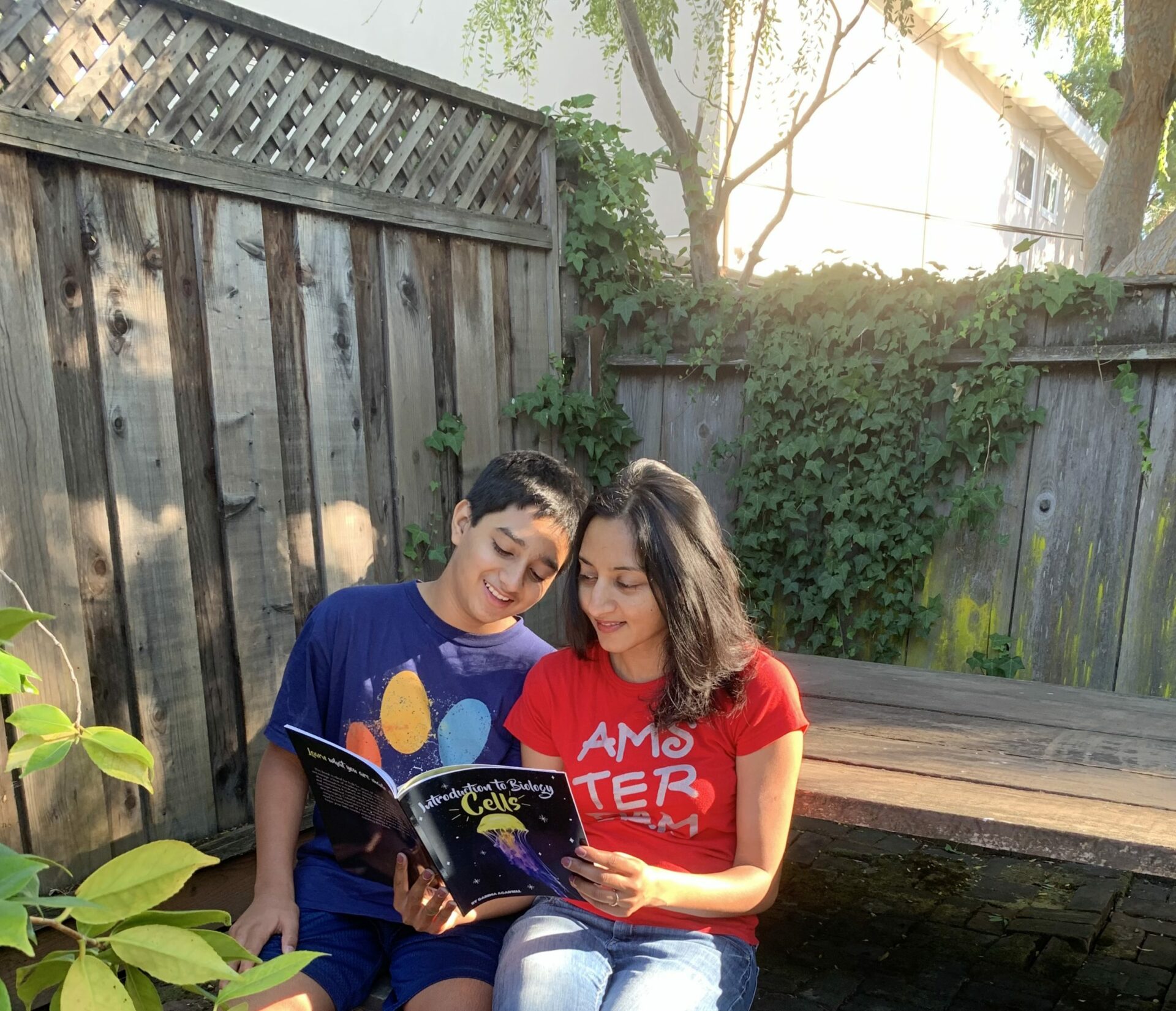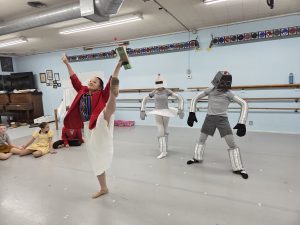“The idea of me writing a book was really pretty crazy. Nobody in my life has ever written a book,” said Garima Agarwal, author of the 34-page children’s book Introduction to Biology: Cells.
Agarwal, who came to the U.S. in 2005, has been passionate about biology since a child growing up in India. Her late father, a veterinarian, filled her head with stories about the wonders of the sciences.
“My dad loved sciences a lot,” said Agarwal. “He would sit down and teach me about biology and genetics, about Mendel, the father of modern genetics.
“He got me really interested in how genes work and how living things are defined by tiny, tiny chromosomes which come from the father and mother. He taught me like a fascinating story.”
In 2019, Agarwal’s son, Aeshaan Singhal, who was born in Santa Clara, was 10. She was looking for engaging ways to share her passion for genetics with him.
“Just like my father influenced me, I wanted to get my son interested in genetics,” said Agarwal, whose university degrees are in computer engineering and telecommunication and software engineering rather than education and writing.
She began researching children’s book writing and publishing, encouraged by a colleague who had published a book. She began researching children’s book writing and publishing, encouraged by a colleague who had published a book. She partnered with illustrator Michael Lu in Sri Lanka. Her son’s fourth grade teachers read the manuscript, offering feedback and proofreading it.
Six months later, when Introduction to Biology: Cells was published in 2019, no one was prouder than her father, who passed away from COVID in India in March of 2021.
“He was so proud of my book. He showed it to everybody that came to the house,” said Agarwal, vice president of technology at Williams-Sonoma in San Francisco.
With the success of her first book — publicized simply by word of mouth among friends and family — Agarwal is inspired to write other books about the sciences for young readers.
“It’s an underrepresented market. There’s a gaping gap on introductory books about sciences — books with fun, consumable bites, so kids might find an early interest,” said Agarwal.
“Kids don’t know science is interesting, and parents don’t think they’ll be interested. We have a subconscious belief that kids would be bored. But all the sciences can be made interesting.”
Agarwal believes starting early is key to teaching children anything, including having a social mindset about our connected universe, saying that “we all have to be responsible and care for each other.”
She and her husband, Abhishek Singhal, facilitate an annual children’s talent show, Bye Bye Cancer. Now in its seventh year, almost $15,000 has been raised for pediatric cancer research at the Lucille Packard Children’s Hospital.
“I’m discovering myself. I feel one of my passions is in teaching children — whether about helping others or about biology,” said Agarwal.
“If you find a good teacher, who can really make you feel interested in learning more, that’s what makes you passionate about any course or discipline.”
Introduction to Biology: Cells is available on Amazon.
“Learning can happen anywhere. Let’s give young children the exposure and let them pick who they are and who they want to be,” said Agarwal.












Good effort
Very helpful and meaningful